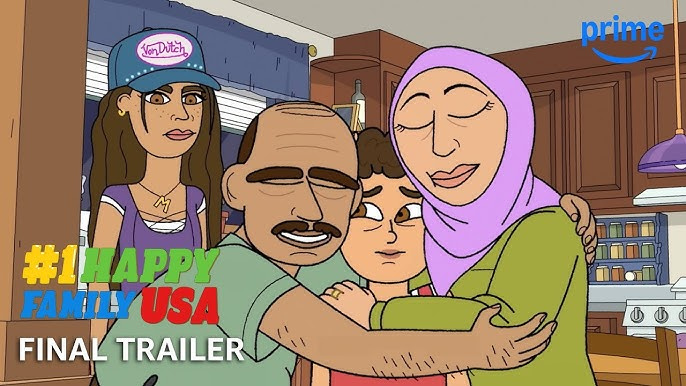
America’s #1 Family (Amazon); Ramy Yousef’s first series was poignant and packed wollops of sentimental value but let’s be clear: It was NOT a comedy, no matter what lies the golden globes or Emmys will try to feed me. The show still exists to give the Muslim community
much needed visibility, but it’s max funny. Leaning on the animated equivalent of fourth wall breaks, it had kinds of nods to old-school silliness with dream sequences of a kid’s teacher crush responding to her or the president popping in as guest star of the week.
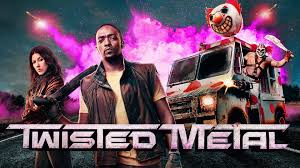
Twisted Metal (Peacock): A post apocalyptic dark comedy with a certain aesthetic that screaming for you to notice it in the same way as a darker Wes Anderson, the Seth Rogen show Preacher or Robert Rodriguez. Anthony Mackie (the MCU) and Stephanie Beatriz (Brooklyn Nine Nine) are the leads, but the series seems to be hoping its scene stealer, Sweet Tooth, will be the draw. Voiced Will Arent, sporting a psychotic clown mask, and a roused body similar to Batman’s Bane, he’s painted as a poor man’s joker in his childish antics and his randomness over who he kills (which is the most fear-inducing quality of even a boring villain). In the first episode, he wants the protagonists to listen to his stand-up act which is supposedly its own form of hell. Sound menacing enough for you?
The dark quirk angle is there but not hard enough to make the show wholly can’t-miss. It’s watchable, not spectacular.
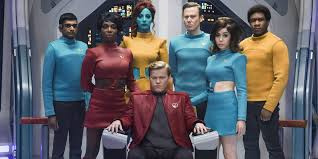
Black Mirror (Netflix)-This season had 3 spectacular episodes—Bete Noir, Hotel Reverie, and USS McCallister 2-which is enough to excuse the fact that Charlie Booker swings big and won’t always get it right. Even this analysis undersells Black Mirror's batting average: Each episode revolves around a deep question (the Peter Capaldi episode, for example, asks "Are there consequences to being billigerent to video game characters?") that the viewer might not be interested in answering (like myself). Thes Eulogy episode was also of strong and poignant, but Paul Giamatti's take was too dark for my mood that day. Personally I like my mopey Paul Giamatti to not get outright clinically depressed as this guy was.
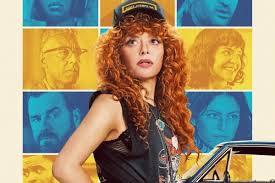
Poker Face (Peacock) Charlie Cale’s penchant for being at the right place at the right time is handled organically enough that it doesn’t feel like half the gimmick it is on every other whodunnit show of this nature. But the Peter Falk imitation, oy vey, let’s not overdo it Natasha Lyonne. As I said in the first season, what makes Poker Face great is that justice isn't always served in some perfectly congruous way. Virtually the only constant is that Charlie will be left to pick up the pieces and start a new life. This isn't dissimilar from the Western hero who is forced to ride off into the sunset over the closing credits, because he would never fit into the civilized society he helped build.
Through four episodes of the second season, Riann Johnson's series whole-heartedly immerses us into different subcultures (funerary homes, abusive child acting, the Florida animal control that birthed Gator King, etc). One episode is a half send-up to the Departed with the comedic stylings of Lyonne, John Mulaney, Simon Helberg and Rhea Perlman inserted in the leads (and yet, it somehow works). Ano
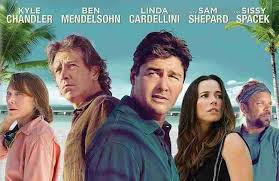
Bloodline (Netflix)-Because I was just visiting the Florida Keys, I was reminded of this series that was one of Netflix’s first streamers in 2015. Interestingly enough, Despite not being up of the big murder plot, that’s the long arc of the season, I am actually finding that the show consisted me based on the scenery porn, The quality of the acting, the chemistry, And the dialogue. The basic family dynamics, and the sense of what is happening in the smaller sub pots are enough to keep me engaged. I think this makes sense though, Not all viewing is predicated on people following every element of the plot.
Srugim (Yes TV, now on Amazon)- After doing a film talk about Judaism on film, I was convinced to look at an Israeli show. Despite being half-Israeli, I've never been particularly attached to Israeli culture and didn't initially think this had much to do with my American Jewish experience. There's a lot to unpack in my detachment from Israel (an anomoly among the Tribe) and enjoying one show isn't going to repair such a gap, but the point of my exploration between Judaism and the media was to illustrate that the gaps in our understanding of religion start out from a pretty immense place (even between sects of Judaism), so the media has a surprisingly large amount of work to do in our religious messaging.
In this case, the show focuses on a specific class of Israeli Jews who are Sabbath-obervant but not secluded from secular society. This quintet is on the verge of 30 and preoccupied with settling down. That tends to happen across the board for religious devotees who can't get it on outside of marraige, and the show deals with that quite frankly.
The show is labelled as a drama which is accurate, but it veers into a certain dramedy territory and finds the appropriate soft moments to balance out the emotional heaviness. The five leads (except maybe Reut) can be described as self-sabatoging or more charitably described as taking a while to find themselves. Either way, it's highly compelling TV.

